#yussupov
Explore tagged Tumblr posts
Text

Grand Duke Alexander with his daughter, Princess Irina
#Grand Duke Alexander Mikhailovich#Princess Irina Alexandrovna Yusupova#Princess Irina Youssoupoff#Romanov#Yusupov#Youssoupoff#Youssoupov#Romanoff#Yussupov
81 notes
·
View notes
Text
Princess Zinaida's little white dog
Hello, this might be a shot in the dark but does anyone know the name of Princess Zinaida/Zenaide's dog? I've been looking all over the internet but there's nothing... Has it ever been known? I feel like it should be written down somewhere, right? We know about Felix's Punch and Gugusse and even his macaw but not his mother's dog?
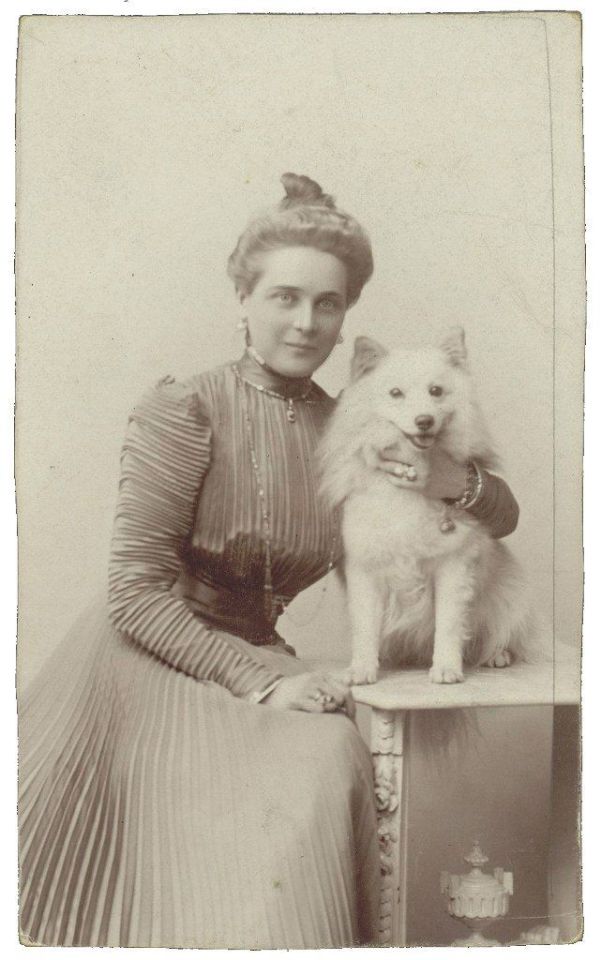
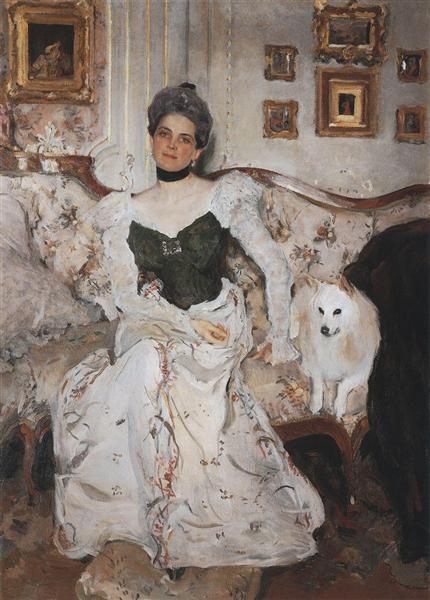
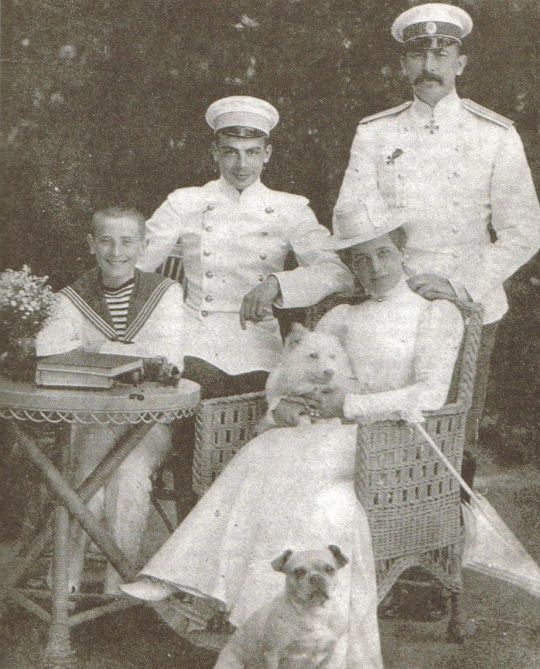
this little white dog!!
I know two of Felix's dogs names but if you also infos on more, I'd gladly take them! I just love the Yusupov and their dogs and I wish we had more informations about them...
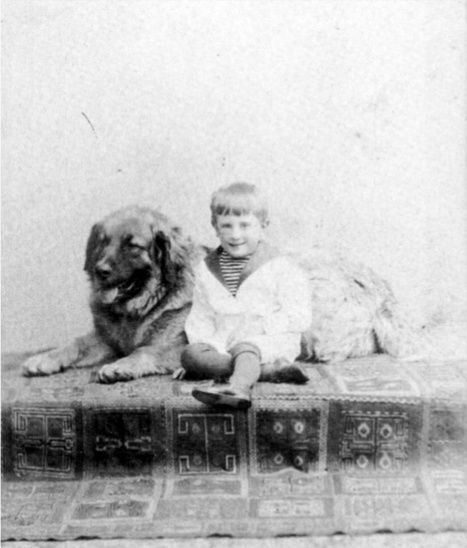
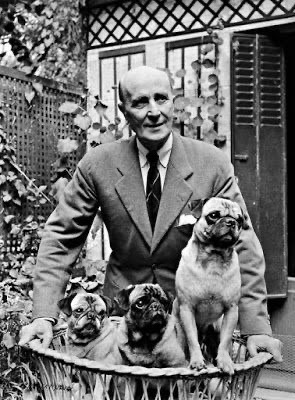
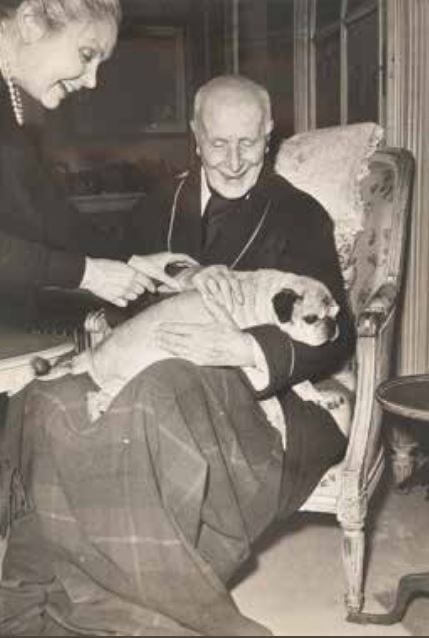
#yusupov#yussupov#youssoupoff#youssoupov#Princess Zenaide#Princess Zinaida#russian history#Zinaida Yusupova#felix yusupov#dogs#dog#animals
8 notes
·
View notes
Text

Prince Felix Yussupov and Princess Irina Alexandrovna of Russia on their wedding day, 1914
#Prince Felix Yussupov#felix yusupov#imperial russia#imperial family#russian imperial family#romanovs#colored photography#1910s#1914#1910s fashion#history colored#Princess Irina Alexandrovna of Russia#Princess Irina Yussupov#Irina Yusupov
107 notes
·
View notes
Text
Marianne - The Most Scandalous of the von Pistohlkors Siblings
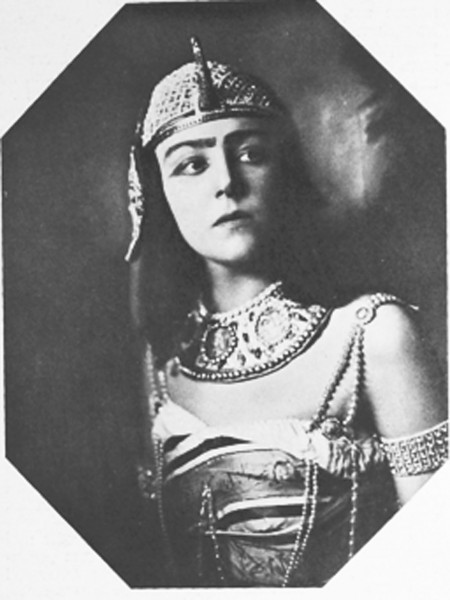
Marianne von Pistohlkors was born in 1890 and was known by many names throughout her life. Her family called her "Babaka", her friends called her "Malanya".
In 1908, at the age of 17, she married Lt. Col. Peter Petrovich Durnovo, the son of the Minister of Internal Affairs, Pyotr Durnovo, and a classmate of her older brother Alexander. They had one son, Kyrill, born in November 1908. During that time, she was known as Mrs. Durnovo.

There are different versions as to why the couple got divorced just three years after their marriage. Some say Durnovo had a drinking problem and was abusive, others say Marianne was having an affair with none other than Rasputin:
"She was married first to the guards hussar Durnovo. She was acquainted with Rasputin. Once Durnovo, having suddenly appeared at a small gathering of the Elder's admirers, caught the moment when the Elder was embracing his wife. With a strong blow the hussar knocked the Elder down, took his wife away, and Rasputin, lying down, shouted: "I will remember you" - A.I. Spiridonovich
Either way, the couple was divorced in 1911, but it didn't take long for 22-year-old Marianne to find a new husband: a year after her divorce, she married Christopher Ivanovich von Derfelden, another officer and collegue of her brother Alexander. From then on and during most of WWI, she was known as Marianne von Derfelden. And it would be under that name that she would be implicated in one of the most famous murders of history.
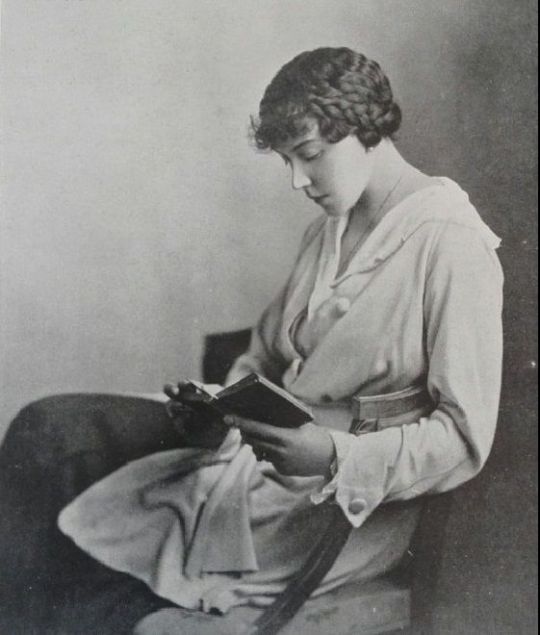
Marianne was considered a very attractive woman. She was also witty, inteligent and social, which made her very popular in Saint Petersburg high society in the final years leading up to World War One. One of her most famous stunts was to attend a costume ball given by Kleinmichel dressed as an Egyptian in which she performed a provocative dance with a naval officer (who was not her husband).
Two photographs of the evening were published in a famous social magazine and were a tremendous success.
At the time, Marianne was also an amateur actress and model.
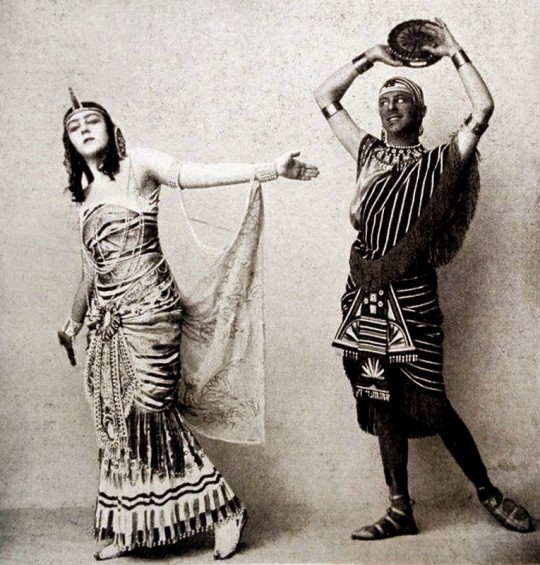
After World War One started, Marianne became a nurse and drove ambulances around the city. On January 5, 1916, she received the St. George Medal for her efforts.
Since her mother and stepfather had returned to Russia in 1914, Marianne had also developed a close friendship (some even refer to it as flirtation) with her step-brother, Grand Duke Dmitri Pavlovich. They attended the same parties and had the same circle of friends. They also were among the Saint Petersburg aristocratic groups that hated Rasputin and thought he was a bad influence on the Empress.
This was a time when the rumours in Petrograd society were particularly wild and farfetched, so the nature of Dmitri and Marianne's relationship varies between "friendly", "flirtatious" to "they were lovers and took pictures of themselves reenacting Kamasutra positions" and "they participated in orgies thrown by Prince Felix Yussupov in his palace".
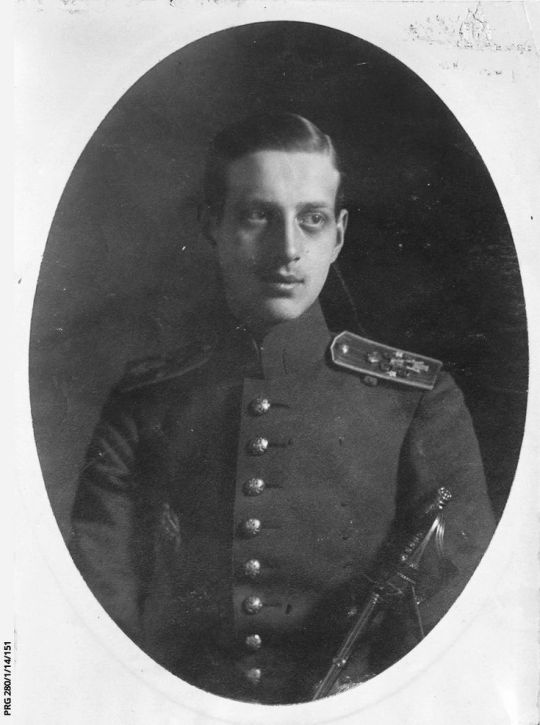
Whatever the nature of their relationship, the truth was that Marianne was deeply involved in the conspiracy to murder Rasputin. It had never been fully proved that she was the Yussupov Palace, but she knew about the plans and there were rumours that some of the meetings to organize the murder took place at her apartment.
When it was discovered that Dmitri was one of the co-conspirators and was sent to the Persian front as punishment, Marianne was one of the few people who went to the train station to say goodbye, which ultimatly alerted the authorities to her participation and Empress Alexandra ordered her house arrest. Her telephone was taken and her house was searched [apparently, when the guards asked for a key to open a closed drawer, she told them 'you'll only find love letters'], but nothing was discovered and she was set free on three days later.
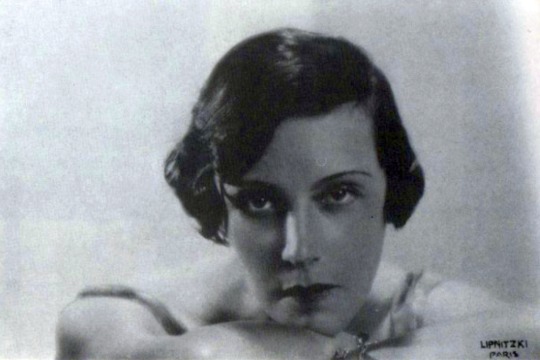
A few days after Dmitri's departure, the French Ambassador, Maurice Paléologue, met Marianne at a restaurant and this was what he wrote about the meeting in his memoirs:
Dining at the Restaurant Contant this evening, I saw pretty Madame D----- at the next table with three officers of the Chevaliers-Gardes; she was in mourning. During the night of January 6-7, she was arrested on suspicion of having taken part in the murder of Rasputin, or at any rate known of the preparations. Thanks to the high influences which protect her, she was simply kept under observation in her flat and released three days later. When a police officer asked her for the key of her bureau in order to secure her papers, she replied sweetly and simply: "You'll only find love-letters." The remark is Madame D----- personified. Twenty-six years of age, divorced, remarried at once, then separated from her second husband, she leads a wild life. Every evening, or rather every night, she holds high revel until morning: theatre, ballet, supper, gypsy singers, tango, champagne, etc. And yet it would be a great mistake to judge her solely by this tawdry dissipation; at bottom she is warm-hearted, proud and an enthusiast. Rasputin's murder, of the preparations for which she knew, came as a thunderbolt to her. The Grand Duke Dimitri seemed to her a hero, the saviour of Russia. She went into mourning on learning the news of his arrest. When she heard that he had been sent to the Russian army front in Persia, she swore to continue his patriotic work and avenge him. Since the police evacuated her residence four days ago, she has been concerned in all the ramifications of the plot against the Emperor, carrying letters to some and passwords to others. Yesterday she called on two colonels of the guard to win them over to the good cause. She knows that the agents of the terrible Okhrana are watching her, and is fertile in resources to throw them off the scent. Any night she expects to be incarcerated in the fortress or sent to Siberia; but she has never been so happy before. The heroines of the Fronde, Madame de Longueville, Madame de Montbazon and Madame de Lesdiguières must have known this unreal exaltation, by virtue of which the conscientiousness of a great peril rekindles a great love. When she finished dinner she passed close to my table, followed by her three officers. She came up to me. I rose to shake hands. In rapid tones she said: "I know that our mutual friend came to see you yesterday and told you everything . . . He's extremely anxious about me. It's only natural . . . he loves me so much! Anyhow, he thought you would be ready to help me in case of disaster and was anxious to make certain. But I knew what you'd say. What could you do for me if things went badly? Nothing; that's obvious . . . . But I'm grateful for the nice things you've said about me, and I'm sure that at the bottom of your heart---though not as ambassador---I have your approval . . . We may never meet again. Good-bye!" And with these words she sped away swiftly and silently, escorted by her chevaliers-gardes.
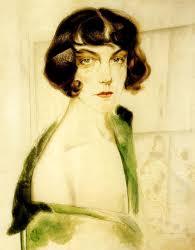
As mentioned in the quote above, by 1916, Marianne was already separated from her second husband and would soon marry again, this time in October 1917 to Count Nikolai Konstantinovich von Zarnekau, a son of Prince Konstantin of Oldenburg.
Perhaps because of the preassures of the revolution [Marianne later revealed that her life with Nikolai was marked by poverty], this marriage was even shorter than the others and, by 1918, she was already in a relationship with Andrei Nikolaevich Lavrentiev, a Russian actor and theater director.
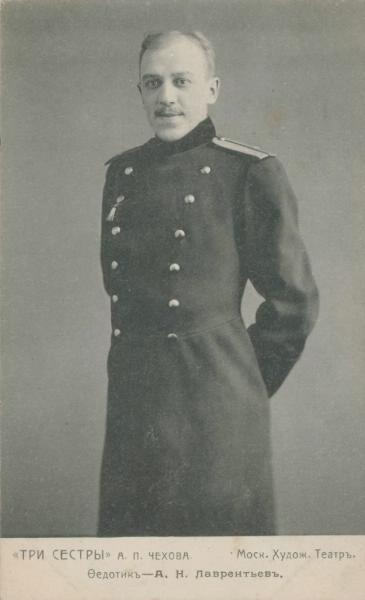
According to her mother’s recollections, Marianne warned her family several times about the impending arrest, having received information from a commissar who was infatuated with her. “She was quick, … tactfully and easily met Kuzmin. He fell madly in love with her. And he freed us for her sake,” wrote Olga Paley. On August 9, 1918, the Danish envoy H. Scavenius proposed a plan through Marianne to save the Grand Duke: Pavel Alexandrovich, dressed in an Austro-Hungarian uniform, was to hide in the Austro-Hungarian embassy, but the latter refused to change into the uniform of a state hostile to the Russian Empire. Despite all her efforts, she still failed to save her family.
After the death of her son and husband, Olga Valerianovna and her younger daughters illegally emigrated to Finland with the assistance of P. P. Durnovo, Marianna's first husband. Her father and brother Alexander left the country with their families.
Marianne, however, remained in Russia until 1921. She became an actress at the Bolshoi Theater under the stage name Maria Pavlovna in honour of her late stepfather. In 1921, she moved with her lover to Riga, where they remained for several years. In 1936, under the stage name Marianne Fiori, Marianne moved to New York and would remain in the United States until her death. In 1961, she was married for the fourth time to Mikhail Aleksandrovich Paltov, the son of chamberlain Aleksandr Aleksandrovich Paltov , formerly a captain of the Life Guards Horse Grenadier Regiment.
#romanov#paul alexandrovich#imperial russia#russian aristocracy#marianne von pistohlkors#grigori rasputin#grand duke dmitri pavlovich#prince felix yussupov#irina paley#natalie paley
47 notes
·
View notes
Text
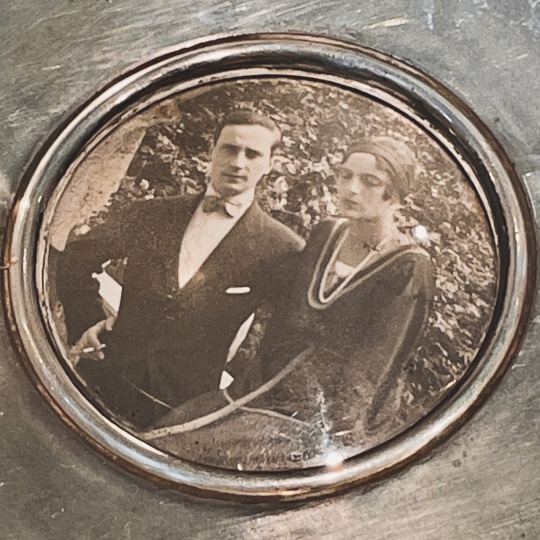
Irina Alexandrovna and Felix Yussupov.
28 notes
·
View notes
Note
Hey, you! *grabs him by the sleeve, pulling him back* Do you have a free hour or so and space in your pocket for a few bucks?
— @juliasromeo
Ack— *stumbled back a bit and quickly looks at him with a glare* Hey! What is— Oh, It’s just you Romeo. *adjusts bangs* An hour of free time? We’re in college; free time is a luxury. However, what is this proposition of yours?
6 notes
·
View notes
Note
Hello! I'm creating a Romanov roleplay so could you give me a list of members and friends of the Romanov family, and others (Standart officers, Bolsheviks, etc.) for people to roleplay? That would be very helpful since I know I'm going to accidentally miss some characters (^^”).
Hi! These are some people who were involved with the Romanovs:
Friends:
Anna Vyrubova—quite possibly Alexandra's dearest friend. Typically viewed as a bit of a simpleton or a cunning spy--the reality is probably that she was neither. Also very attached to Rasputin.
Lili Dehn—another of Alexandra's friends, a lady-in-waiting. Also close with Nicholas and the children; was with Alexandra when Nicholas abdicated.
Elizabeth Naryshkina—the elderly mistress of the robes.
Sophie Buxhoevedon—lady-in-waiting, affectionately known as "Isa" (also spelled "Iza").
Catherine "Trina" Schneider—also attempted (unsuccessfully) to teach the Romanov sisters German. Taught Russian to Alexandra. Lutheran.
Grigori Rasputin—infamous. Especially intimate with Alexandra, also a sort of mentor for the daughters. Killed in 1916.
Kolya Demenkov—Alexei’s friend.
Gleb Botkin & Tatiana Botkina—the children of Evgeny Botkin.
Sofia Orbeliani—Alexandra’s friend and an invalid. Died in 1915.
Countess Anastasia “Nastenka” Hendrikova—family friend.
Family:
Dowager Empress Maria Feodorovna—OTMA's grandmother. But a bit frosty in her relations with Alexandra.
Grand Duchess Olga Alexandrovna—Nicholas II's sister. Often the grand duchesses spent Saturdays with her.
Grand Duchess Xenia Alexandrovna—Nicholas’s sister. Her family was known as the Ai Todories due to their estate. Her daughter Irina especially was close to the daughters. (Irina’s husband, Felix Yussupov, was one of Rasputin’s assassins.)
Grand Duke Dmitri Pavlovich—one of Nicholas’s favorite cousins, and once considered a possible groom for Olga. Under the care of Elizabeth Feodorovna. One of Rasputin’s assassins.
Grand Duchess Elizabeth Feodorovna—Alexandra’s sister. Became a nun after her husband Sergei’s assassination in 1905; sent coffee and chocolate to the family during imprisonment. Murdered by the Bolsheviks.
Grand Duke Mikhail Alexandrovich—Nicholas’s brother. Married morganatically and exiled. Saw Nicholas before Nicholas’s departure to Tobolsk. Also murdered by the Bolsheviks.
Grand Duke Nicholas Nikolaevich—commander in chief of the Russian army during WWI until Nicholas II took over. Not liked by Alexandra due to his dislike of Rasputin.
Tutors/Staff:
Pyotr Vasilievich Pyotrov—the Russian tutor, known as "PVP."
Pierre Gilliard—the French tutor, especially close to Alexei. Often called "Zhilik" or "Monsieur."
Sydney Gibbes—the English tutor, often known as "Sig."
Sofia Tyutcheva—Known as "Savanna," OTMA's unofficial governess when they were young. Outspokenly against Rasputin, and not popular with the Romanovs' other friends.
Margaretta Eagar—OTMA's Irish governess, dismissed in 1904.
Anna Demidova—lady-in-waiting who accompanied the family and was eventually killed with them. Known as “Nyuta.”
Aloise (Alexei) Trupp—footman who was killed with the family; unique in that he was Latvian, and Catholic.
Ivan Kharitonov—cook killed with the family.
Leonid Sednev—companion of Alexei during captivity, eventually sent away by Yakov Yurovsky.
Eugene Botkin—doctor (primarily Alexandra’s). Killed with family.
Nagorny and Demenkov—Alexei’s “sailor nannies.” Only Nagorny continued on with the family to Tobolsk.
Standart Officers of Note:
Pavel Voronov—Olga's love interest in 1913. She wrote of him as "S." in her diaries.
Alexander Konstantinovich Shvedov—Also Olga's love interest in 1913, took place before Voronov. Referred to as "AKSH" in diaries.
Viktor Zborovsky—Anastasia's crush. She also exchanged letters with his sister Ekaterina "Katya" in captivity. Nicholas's favorite tennis partner.
Patients during WWI/Nurses, Doctors:
Dmitri Shakh-Bagov—Olga's love interest. Known as "Mitya."
Dmitri Malama—Tatiana's love interest. Gave her a dog known as Ortipo, named after his cavalry horse.
Valentina Cheborateva—OT’s friend and fellow nurse.
Margarita Khitrovo—fellow nurse and friend. Known as “Ritka” or “Rita.”
Dr. Vera Gedroits—female doctor. Known as “Princess Gedroits.” After the tsar’s abdication, her behavior turned increasingly unconventional.
Vladimir Kiknadze—Tatiana’s love interest after Malama. Considered a dangerous flirt by the other nurses and doctors.
Politicians:
Sergei Witte—Served as prime minister 1905-1906.
Pyotr Stolypin—Served as prime minister 1906-1911. Sofia Tyutcheva, Nicholas II, and OT were there at his assassination.
Mikhail Rodzianko—state chairman of the Duma, 1911-1917.
Bolsheviks/Captors, etc.:
Alexander Kerensky—member of the Provisional Government. Oversaw the Romanovs’ house arrest.
Eugene Kobylinsky—commandant during house arrest; nevertheless on good terms with the family.
Vasily Yakovlev—commissar, searched the house at Tobolsk; helped transfer the family to the Ipatiev House at Ekaterinberg.
Alexander Avdeev—commandant at the Ipatiev House.
Yakov Yurovsky—commandant at the Ipatiev House after Avdeev. Orchestrated the murders.
Pyotr Ermakov—one of the executioners, his accounts of the Romanovs and their murder are highly exaggerated and untruthful. Was drunk on the night of the murders.
Ivan Skorokhodov–despite the rumors there is no reliable evidence to support the idea of a liaison with Maria. However, he was really a guard at the Ipatiev House.
#imperial russia#history#anna vyrubova#lili dehn#sophie buxhoevedon#rasputin#maria nikolaevna#romanovs
21 notes
·
View notes
Text



We are excited to announce the arrival of Romeo Nikolai Yussupov [@juliasromeo] to our hotel as a waiter at the hotel rooms and restoraunt. Please join us in extending a warm welcome to him.
Romeo Nikolai Yussupov, we hope you have a wonderful experience and find everything you're looking for during your time with us.


3 notes
·
View notes
Text
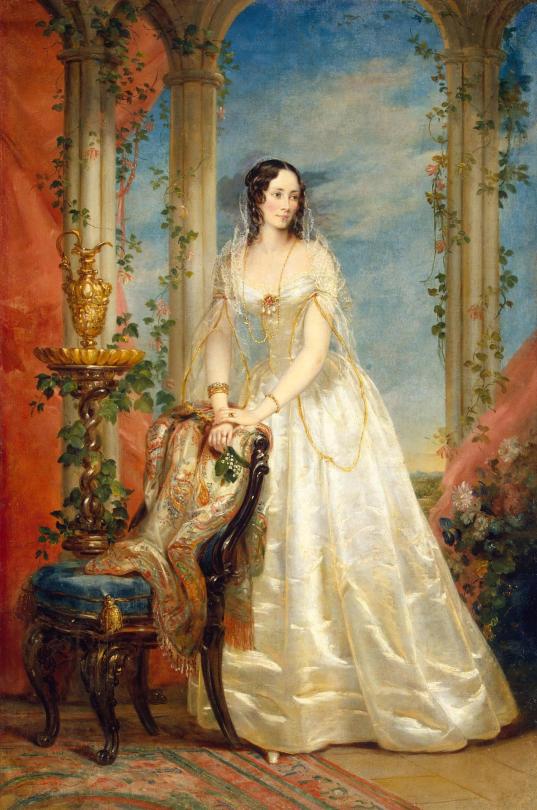
"When a child, I bad the rare good fortune of knowing one of my great-grandmothers, Zenaide Ivanovna, Princess Yussupov, Comtesse de Chauveau by a second marriage. I was only ten when she died, but she still remains deeply impressed upon my memory.
She was one of the most beautiful women of her generation. She had led a very gay life and had had numerous love affairs, among them a romantic attachment for a young revolutionary whom she followed to Finland where he was interned in the Sveaborg Fortress. She bought a house on a hill facing the prison in order to be able to gaze at her beloved's window from her room.
When her son married, she gave the young couple her house on the Moika Canal in St. Petersburg and went to live in Liteinaia Street in a smaller replica of the Moika residence.
When I was sorting her papers long after her death, I discovered, among a mass of correspondence with the greatest names of her day, a series of letters from the Emperor Nicholas 1, which left no doubt as to the nature of their relations. In one of these letters the Tsar offered her the Hermitage, a pavilion in the park of Tsarskoe Selo and invited her to spend the summer there, in order to be nearer him. A draft of her reply was pinned to his letter. Princess Yussupov thanked the Tsar for his charming attention, but refused his gift, saying that she was used to living in her own houses, and the number of her estates was amply sufficient for her needs. However, she bought a piece of land adjoining the Imperial Palace and built a pavilion on it which was an exact copy of the one offered by the Tsar. Both the Emperor and his wife frequently visited her there.
Two or three years later, having quarreled with the Tsar, she went abroad. She settled down in Paris and bought a house in the Parc des Princes. All Paris of the Second Empire flocked there. Napoleon III took a great fancy to her, but his advances met with no response. At one of the balls given at the Tuileries, a handsome young Frenchman of modest extraction was introduced to her. His name was Chauveau. She was greatly taken by the good looking young man, married him, bought him the Chateau de Keriolet, in Brittany, and obtained for him the title of Comte, and for herself that of Marquise de Serre. The Comte de Chauveau died soon after their marriage, bequeathing the Chateau de Keriolet to his mistress. The Comtesse, furiously angry, bought the chateau from her rival at an exorbitant price and gave it to the state on condition that it should be turned into a museum.
We used to visit my great-grandmother in Paris every year. She lived alone with a companion in her house in the Parc des Princes. We used to stay in a pavilion connected to her house by a subterranean passage, and never called on her except in the evening. I can see her now, enthroned majestically in a huge armchair, the back of which was decorated with three coronets, the emblems of her triple rank of princess, marchioness and countess. In spite of her extreme old age, she was still beautiful and had retained an imposing appearance and aristocratic bearing. Always very carefully made up and perfumed, she wore a red wig and an impressive number of pearl necklaces.
She was strangely mean about some little things. For instance, she invariably offered us moldy chocolates, which she kept in a box made of rock crystal studded with precious stories. I was the only one who would eat them, and I really believe this was the reason why I was her favorite. On seeing me accept what everyone else refused, Granny would caress me affectionately, saying: "I like this child."
She was a hundred years old when she died in Paris, in 1897. She left my mother all her jewels, my brother the house in Parc des Princes, and to me her houses in St. Petersburg and Moscow.
In 1925, when I was a refugee in Paris, I read in a Russian newspaper that the Bolsheviks, while searching our house at St. Petersburg, had discovered a secret door in my greatgrandmother's bedroom; this door led to a room in which was a coffin containing the skeleton of a man. I pondered over this mysterious discovery for a long time. Could the skeleton have been that of the young revolutionary she had loved? Had she hidden him in her home? after helping him to escape? I recollected that years before, while going through my great-grandmother's papers in this very room, I had felt strangely ill at ease and even asked my manservant to stay with me so that I should not be alone".
Prince Felix Yusupov "Lost Splendor"
4 notes
·
View notes
Text
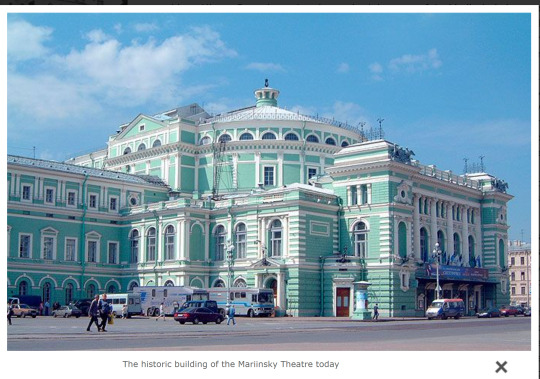
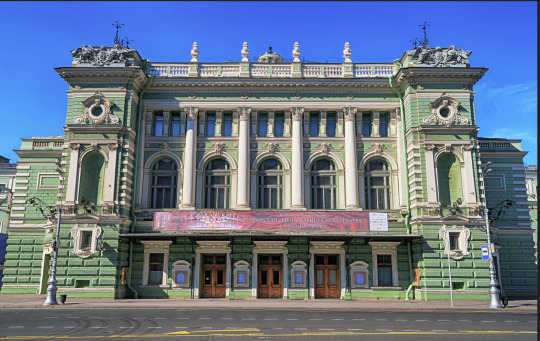
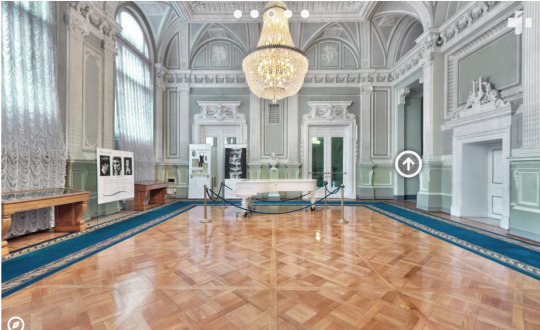


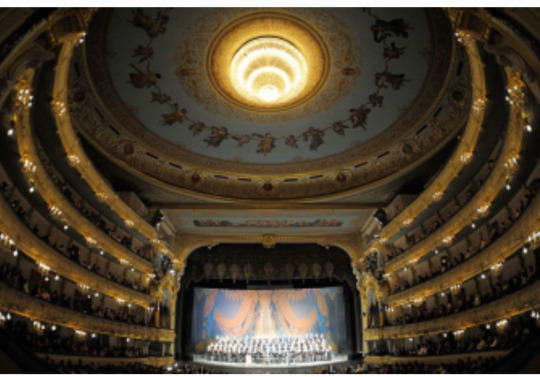

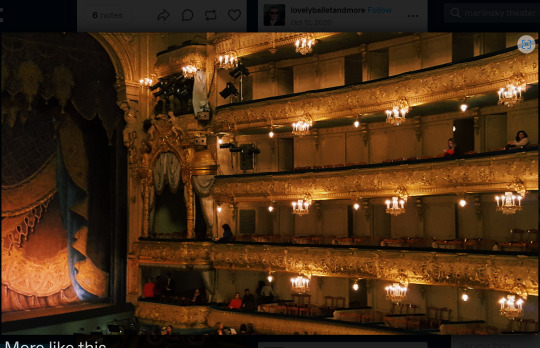

Photographs: 1. The exterior of the Mariinsky as it looks today; 2. A view of the facade; 3. The lobby; 4. A view of the orchestra and of the "Royal Box" which was in fact used by the Tsar only when there was visiting Royalty from other countries, etc. in attendance; 5. The "Royal Box" as seen from the stage; 6. The stage as seen from the "Royal Box" (notice the decorated ceiling and lamp); 7. Another view of the stage. 8. Notice the box next to the stage; that was the Tsar's real box - that was where he sat when he attended a performance with his family; 9. Another view of the Tsar's box next to the stage
"The Season" at Saint Petersburg, the Tsars and the Mariinsky Theater
Those interested in Romanov history and how the members of the dynasty lived know that "The Season," the ballet, opera, balls, etc., were an important part of their personal and political lives. So important, that one of the many factors contributing to the fall of Nicholas II might have been his withdrawal from the social activities "The Season" entailed.
"The Season" in St. Petersburg began in the last two weeks of September. The nobility returned from their vacation in their country dachas at the end of October, at the same time as the Tsar and his family. The most brilliant part of the Season took place during this time, and long-term visitors reported the city looked most brilliant and glorious during this exciting time of gala court balls, festivals, and masquerades.
All of this revolved around the person on the Tsar, who was the most important host, guest, and critic. Nicholas I attended the theater almost every day during the Season. This pattern continued until the reign of Alexander III, when he began to cut back his attendance. His son Nicholas loved the theater (he wrote in his diary that nothing moved him more than music), and as Tsarevich, he attended operas, ballets, plays, and concerts as often as he could. After he married, his wife's frequent pregnancies and illnesses increasingly cut into his attendance. In 1900 the Imperial couple was still attending concerts and performances in the city. Still, they were becoming fewer and fewer each year.
At the center of much of Saint Petersburg's entertainment life was the famous Mariinsky Theatre. Today, it still plays a significant role in Russia's cultural life. The Mariinsky underwent several rebuildings over the years. The luxurious building went up in 1860. In 1883 it was extensively remodeled, and more decoration was added to the facade. The Mariinsky was the center of the famous Imperial Ballet and Opera, home to many of the most famous performing artists of the last 100 years.
Many of the names of these stars are legendary - Nijinsky, Karsavina, Pavlova, Kschessinska, Chaliapin, Petipa, and many others. The artists of the Imperial theatre and the upkeep of its facilities were the responsibility of the Tsar, and all of these costs came out of the annual revenues of the Imperial estates.
Tickets to the Mariinsky were hard to get. Most of them were pre-assigned to subscribers who held their seats for life; when Prince Felix Yussupov married the Tsar's niece, Irina, the Tsar asked him what he wanted as a wedding present. Yussupov, a fan of the performing arts, asked for the right to use the Tsar's box at the theater when he was away - which was a gift beyond price. His request surprised and amused the Tsar, who granted it. The Tsar's private box was on the left-hand side of the Mariinsky stage. It had an incredibly intimate view of the stage, a dining room, and its own elegant bathroom. It also had a private entrance to the building and a staircase.
The Mariinsky Theatre invariably began the Season with A Life for the Tsar, a patriotic opera. The ballet opened on the first Sunday of September, the company having assembled two weeks before.
The competition for seats and the right to subscribe proved the interest it aroused. A petition to the Chancery of the Imperial Theatres had to be filed to obtain a seat; the chance of success was so small that advertisements constantly offered big premiums to the original holders of the stalls. Fathers handed their seats down to their sons. There may have been personal motives in the attachment of some to the ballet, but the cult of this delicate art was always uppermost. (gcl)
14 notes
·
View notes
Text

Princess Irina and Prince Felix Youssoupoff
#princess irina youssoupoff#prince felix yussupov#yusupov#youssoupoff#yussupov#youssoupov#russian nobility
48 notes
·
View notes
Note
WHAT ARE YOU DOING
Locating Yussupov, of course. What else does it appear I would be doing?
0 notes
Note
it's a medical science student so it should be
Medical science student... *hums* I have few, yes, and one paramedicine student... it is not Yussupov, no? He is too smart for that... I hope. Vhat are they called, vho is it?
1 note
·
View note
Text
World’s largest uranium miner warns Ukraine war makes it harder to supply west
Kazatomprom’s chief executive has warned that Russia’s war onUkraine is making it harder for the world’s largest uranium producer.Kazatomprom’s chief executive has warned that Russia’s war on Ukraineis making it harder for the world’s largest uranium producer to keepsupplying the west as the gravitational pull towards Moscow and Beijinggrows stronger. Meirzhan Yussupov, chief of the Kazakh state…
0 notes
Text
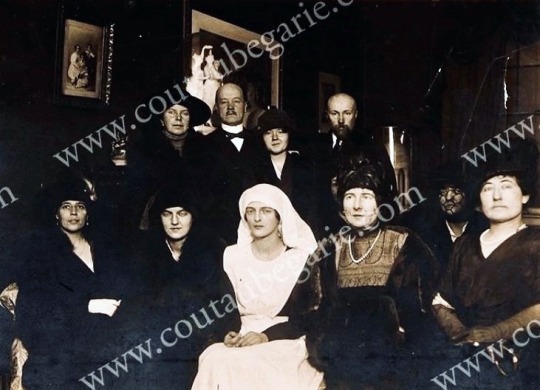
Princess Irina Alexandrovna, Grand Duchess Maria Pavlovna and others at Hospital Yussupov during the WWI.
#irina alexandrovna#princess irina#grand duchess maria pavlovna#the younger#my own#grand duchess#princess
11 notes
·
View notes
Text
youtube
I mean, I would say, "Another day, another interview with no hope whatsoever of English subtitles," but that would be ungrateful.
Okay! The host is Margulan Seisembayev, and he apparently does these roundtables fairly often. Participants are ZaQ; Arman Yussupov, who founded an online training center of some sort; Assel Sadvakassova, an actress and writer (I think?) who also sat down with our favorite YouTube-based one-on-one interviewer, Timur Balymbetov*; and Askar Ilyassov, an actor.
Description:
Each of us wants to be happy, but we all understand happiness differently. In this episode of the Gemba podcast, we talked about what prevents people from being happy and how to achieve balance in life. What is the phenomenon of happiness and how not to lose it? To find out the answers to these questions, watch the episode to the end. I'm sure you will find it interesting! Enjoy watching!
I probably would find it interesting. For now I'm stuck with remarking that Google's ability to render Russian into English has gotten smoother over time.
Translating the timestamps doesn't add a lot; there's apparently some discussion of power-pose theory, some of how reliance on smartphones affects our mental health, and some on the inner child, which may be relevant if you recall that those Gap teasers also had text about the inner child, I am not in a position to research how psychological concepts disseminate differently in different countries but maybe consideration of the inner child is trendy in Almaty right now?
At about 40:49 ZaQ goes into one of his trademark monologues, and I tried the trick I tried a couple months ago, of putting the auto-generated Russian subs into Google Translate. Obviously this is a machine translation of a machine transcription, and if you're feeling cranky about AI I don't recommend this, but the result felt very ZaQ-like: he basically talks about how there was no Kazakh rap when he was growing up, all he had were a couple cassette tapes his uncle would occasionally bring in from the city (I think "the city" refers to Semey), and yet he dreamed of becoming a rapper, focused his energy on becoming a rapper, and now he believes that all that dreaming and visualizing helped him get where he is now. "I constantly gave energy to my future self," says the translation of the transcription, which, again, feels like the kind of thing ZaQ, he who likes to philosophize about energy and ideas traveling like waves, would say.
* Balymbetov, bless him, conducts these one-on-one interviews in Kazakh (including with Bala, who might have been just as comfortable in Russian, maybe more so), so I can't try the transcription-generating trick. At one point I suggested to the @qpoptranslations team that we contact Balymbetov's staff and ask if they have written transcriptions, which would at least allow me to render an imperfect translation and do a summary like I did with the Zamandas interview. But they're understandably wary of picking up extra work, and I haven't summoned up the nerve, myself. If you know someone who knows someone, or know enough about Kazakh manners to tell me to whom to write and what to say to them, I will be in your debt.
1 note
·
View note